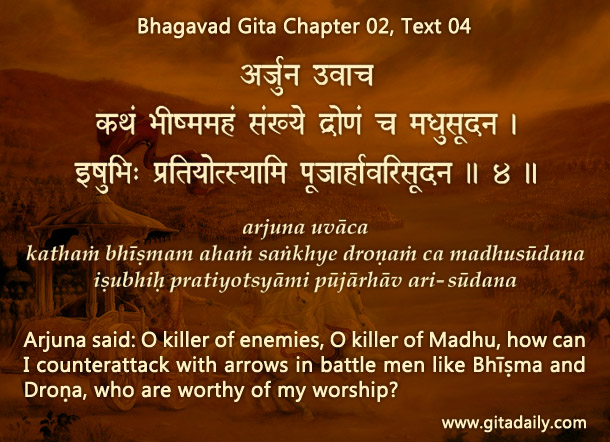When someone points out our faults, our ego often makes us respond defensively and deny those faults. Defending is a natural survival instinct – if we sense something sharp about to pierce us, we reflexively move away or push it away or steel ourselves. But that natural instinct needs to be subordinated to our intelligence. If we come to know that the sharp object is an injection meant for protecting our health, we tolerate the pain. We recognize that avoiding the injection won’t protect us from pain – it will protect the infection that will be the cause of a far greater pain.
Similarly, the ego’s default defensiveness doesn’t always protect us – it may well protect the limitations that prevent us from realizing our potential. Such misdirection happens especially when our defensiveness makes us hostile to the well-intentioned and well-informed suggestions of our well-wishers.
At the start of the Kurukshetra war, when Arjuna became overwhelmed, Krishna deemed his confusion weakness of the heart (Gita 02.03). Arjuna responded defensively by claiming that his confusion stemmed from nobler motives such as respect for elders (02.04) and non-covetousness (02.05). While these did play a part in his reasoning, he was foundationally misled by the bodily conception of life. Because he hadn’t got to the root of the problem, his defensive reasoning, no matter how nobly justified, couldn’t show him any way ahead (02.06). Being intelligent enough to recognize that his argumentation was getting him nowhere, he submitted to Krishna (02.07), thus opening himself to the Gita’s liberating wisdom.
Similarly, when our ego’s default defensiveness offers noble-sounding justifications but doesn’t help us grow, we can use our intelligence to break free from that defensiveness. By thus opening ourselves to Gita wisdom, we can pave the way to our eventual enlightenment and empowerment.
To know more about this verse, please click on the image
Explanation of article:
Podcast:


Leave A Comment